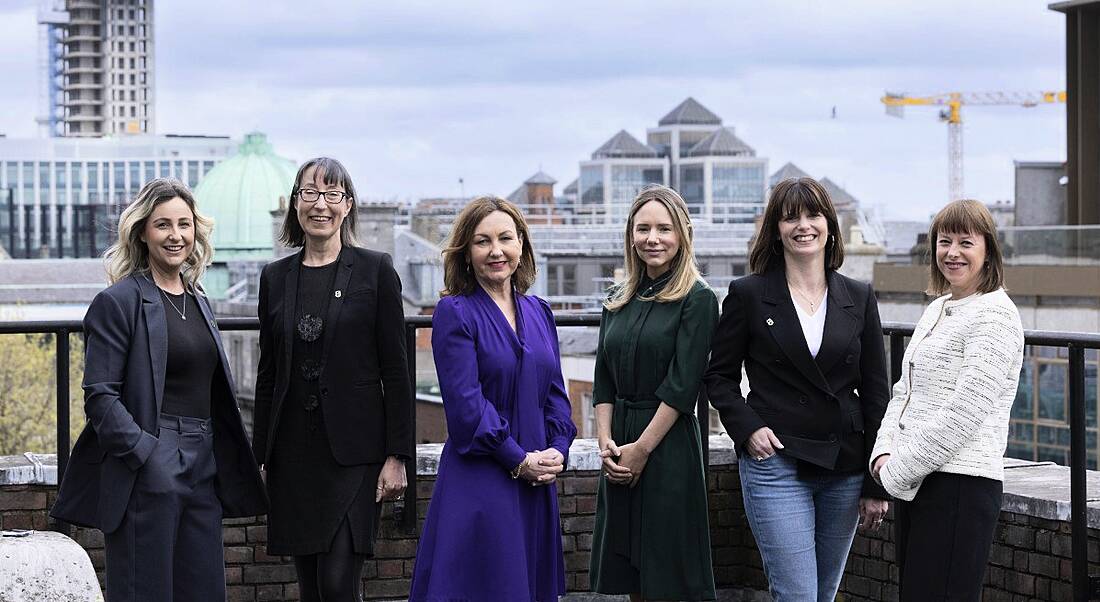For Blacknight’s Chloe Murray, an arts background didn’t stop her making a successful career in tech.
The annual Guaranteed Irish Tech Forum took place last week with a panel of four female leaders in the tech industry from non-tech backgrounds, chaired by our own Ann O’Dea of Silicon Republic.
‘Unveiling Unconventional Paths within the Tech Sector’ was the theme for this year’s event and the non-tech panel included: Maureen O’Rourke, head of digital transformation programme at An Post; Susan Moss, head of public policy and government relations for TikTok; Gina Laverty, CFO at Viatel Technology Group; and Chloe Murray, marketing manager at Blacknight.
We caught up with Murray to ask about her thoughts on the value that non-tech talent can bring to the tech industry.
Having studied English and history at university, Murray has made quite the leap to digital marketing and analytics.
With what she describes as “little to no knowledge of the tech industry”, Murray took up a role at Blacknight, an internet solutions provider, where she has now worked for nearly eight years. She quickly became “very passionate” about tech. “Learning on the job, I became interested in the marketing side of the business,” she said.
She decided to complete a postgraduate degree in digital marketing and analytics, and is now marketing and events manager for the company. Though more tech savvy these days, communication skills are still a key part of her role.
“Part of my role is not only to market to our customers but to communicate to them the value of being online and what it could mean for their business.”
Here, Murray gives us her thoughts on making a successful transition to tech from a non-tech background.
What are some examples of unconventional paths to the tech sector?
If I look around me in Blacknight (when I’m not working from home!), you see people that have come from all different backgrounds.
Sure, we have the web developers and technical engineers, but they only make up part of Blacknight. If you think of someone on our accounts team, they are not necessarily from a technical background, but they are all great at what they do and keep the core of the business running.
Similar to that, our sales and support staff have managed to work hard to not only understand the technology, but also to sell it, support it and our customers while thriving in their roles.
The tech industry can move so quickly, so we are all always learning, and part of that keeps staff engaged, but also in some ways levels the playing field if everyone is learning about a new product or service at the same time. It’s important to remember that although of course we need the technical team, we also need all those other roles within the business so it can function and be successful.
Sometimes when we think of people who work in the tech sector, we forget that even tech businesses need to have those departments that are the backbone of any business.
How can non-tech experience be leveraged in a tech role?
Leveraging non-tech experience is something that we continuously do in Blacknight. To effectively communicate with our customers, it’s key that our non-technical staff have some touchpoint before anything is sent to our clients. In doing this, it allows us to translate the ‘technical jargon’ into something that can easily be understood. We use this across various aspects of communication, be it on the phone, email or through our marketing material. It all comes back to who our customers are, and ensuring they have a good experience with our brand.
What are the biggest challenges when it comes to bridging the gap between tech and non-tech functions within a business?
The biggest challenge when it comes to bridging the gap is trying to understand and extract the key information that is needed, and translating it into something that is useful.
Keeping everyone on the same page and focusing on the end task is something that each department will approach differently, working together to find the balance and the best way to move something forward can be challenging.
For example, during the process of launching a new product our engineering team is focused on getting the product to run smoothly and making sure all the infrastructure is in place etc. For someone in the billing team or customer support team, they are focused on the customer and want to ensure that we have not only a process in place that allows the customer to easily make changes, but also the technical capability to make that change. For example, if a customer would like to upgrade their plan.
Sometimes, when each department is focused on something different, they easily forget how it can impact one another. To overcome challenges, it all boils down to communication, and thinking of the bigger picture and how we can best serve our customers across each step of their journey.
What can tech companies do to entice non-tech talent?
Reaching a talent pool outside of the tech industry is something that can be quite effective for tech companies, if you can appeal to the right audience.
For certain roles, using the correct language and crafting inclusive job descriptions that focus on skills and potential rather than specific degrees or professional backgrounds can help broaden the reach.
For many of our job roles, we take the approach that you don’t need to have a technical background, rather putting the focus on finding someone who has the right attitude and is willing to learn.
Additionally, adopting skills-based hiring practices allows companies to assess candidates on their ability to perform job-related tasks, rather than on their background alone. At the end of the day, people do business with people so once they have the right attitude and approach regardless of their background, they have endless opportunities within the tech industry.
Find out how emerging tech trends are transforming tomorrow with our new podcast, Future Human: The Series. Listen now on Spotify, on Apple or wherever you get your podcasts.




